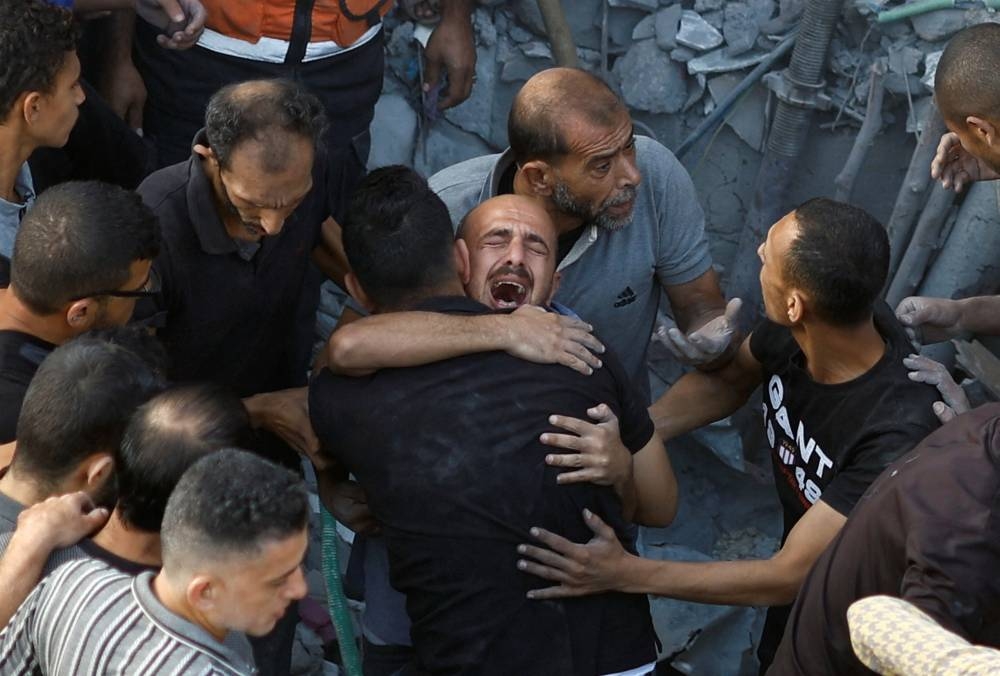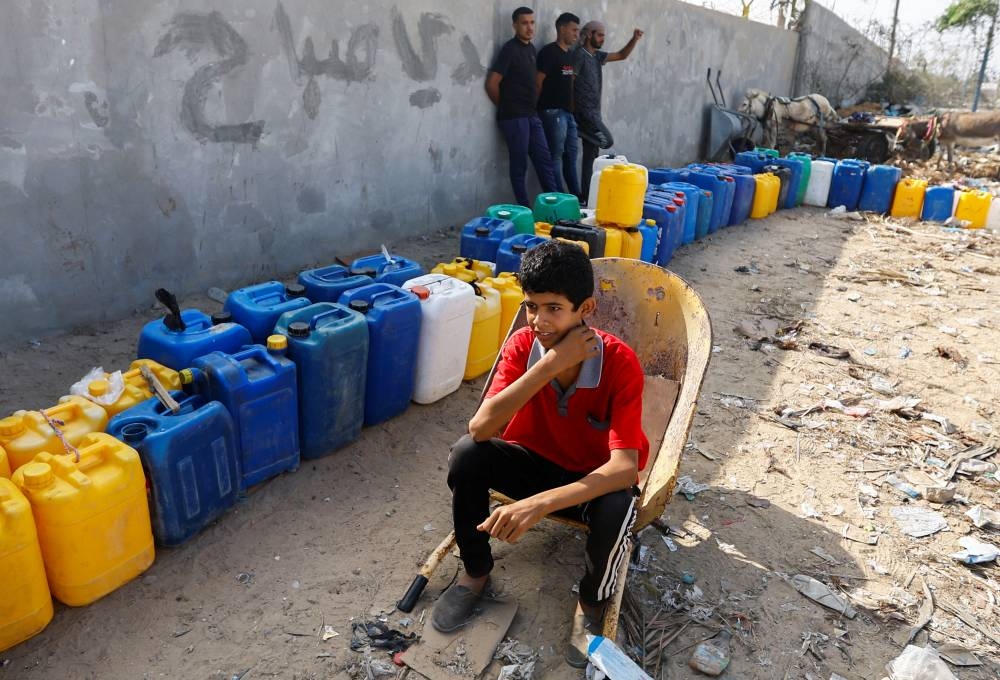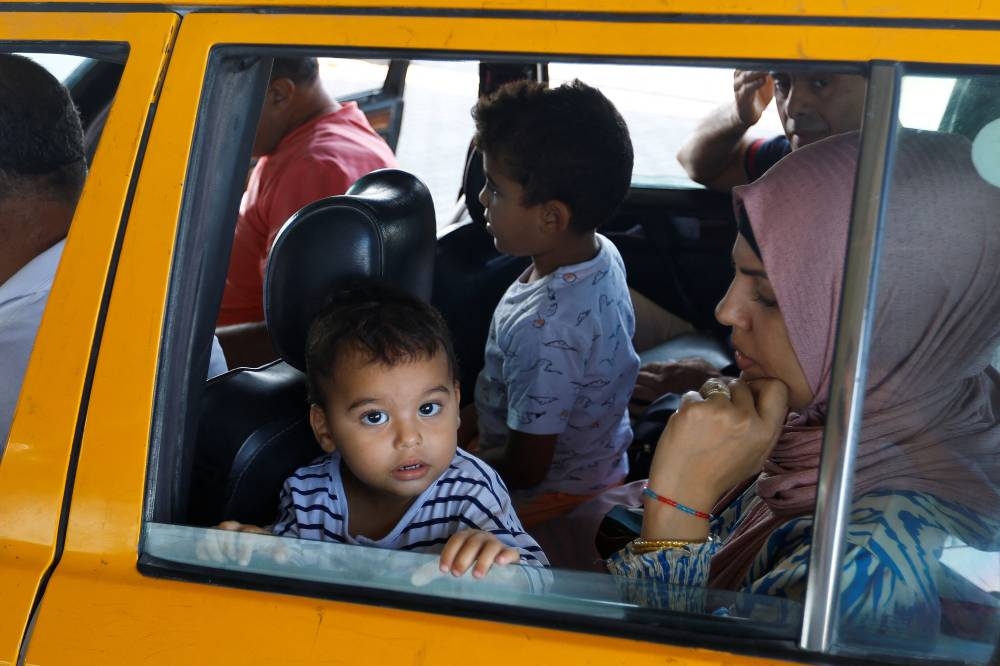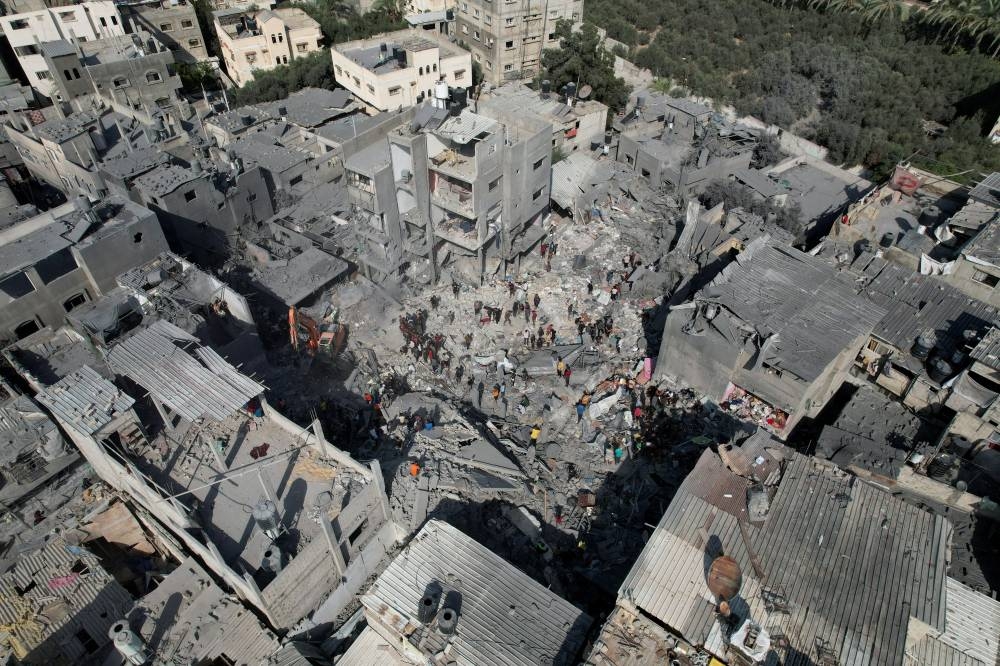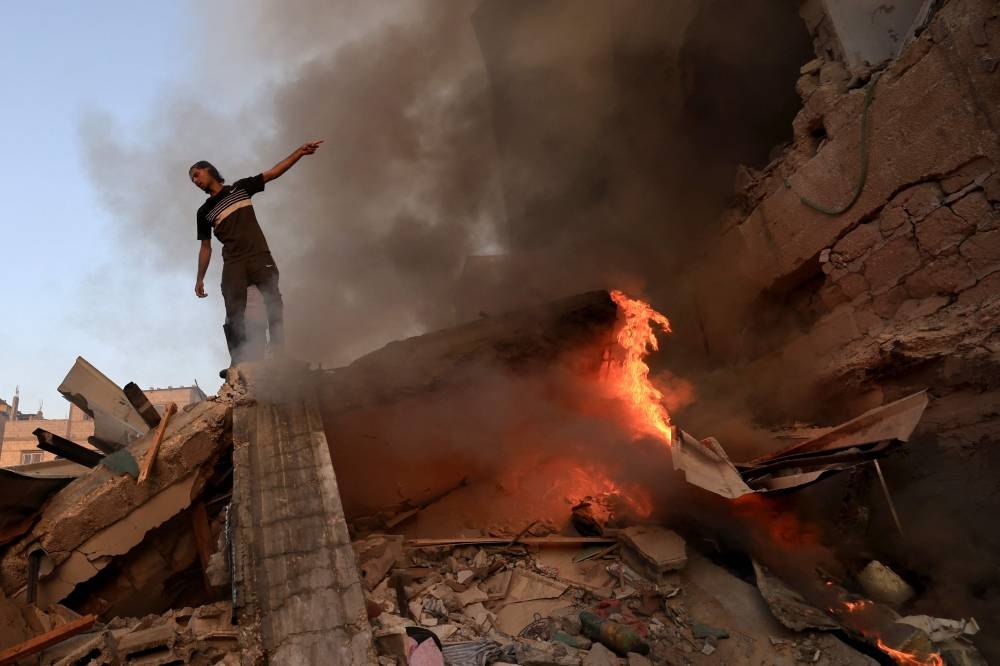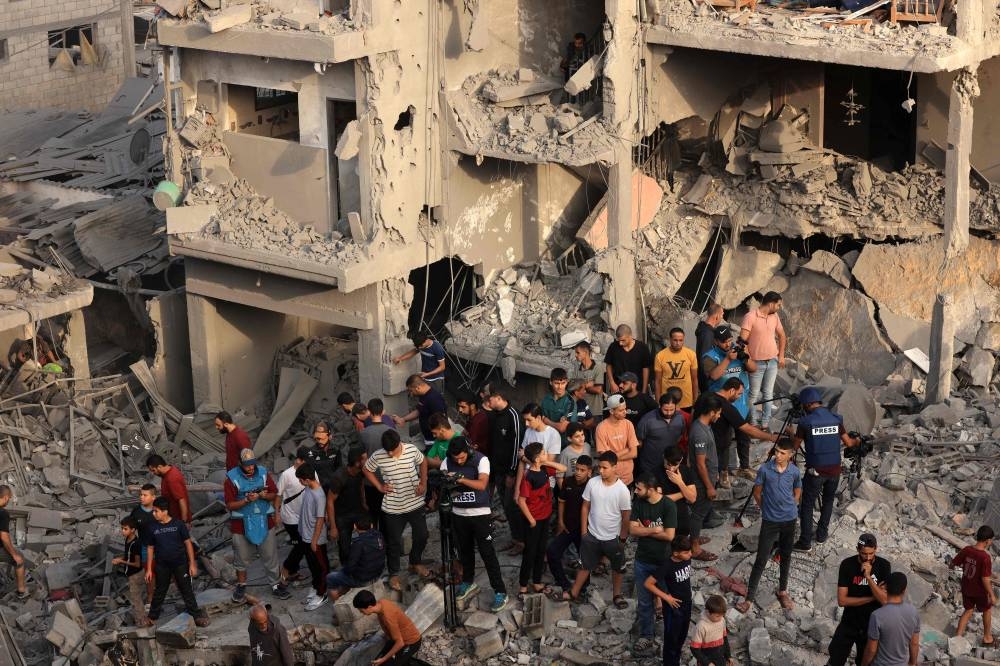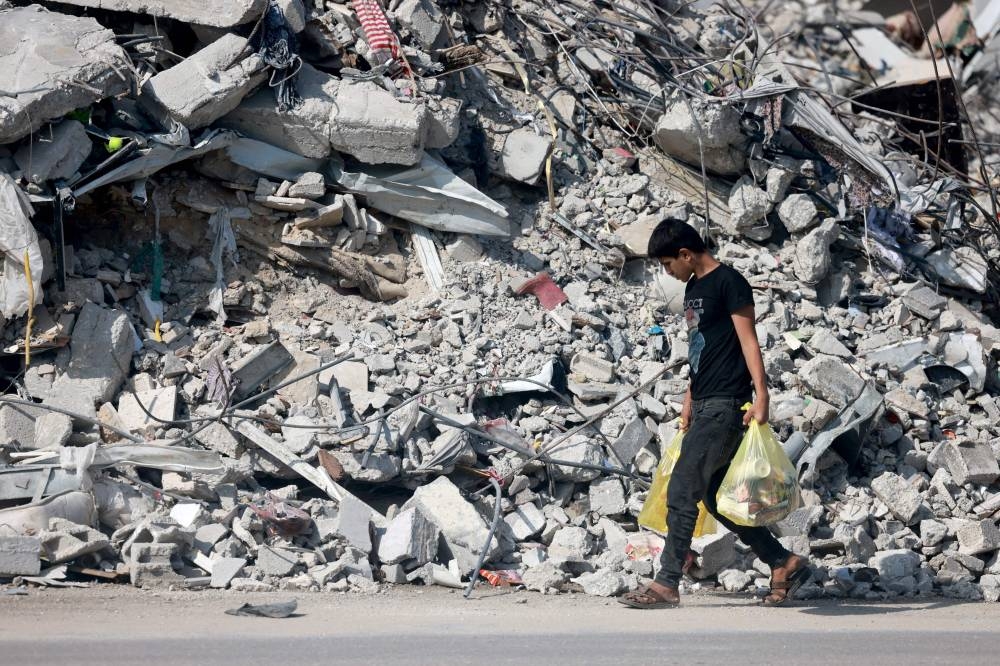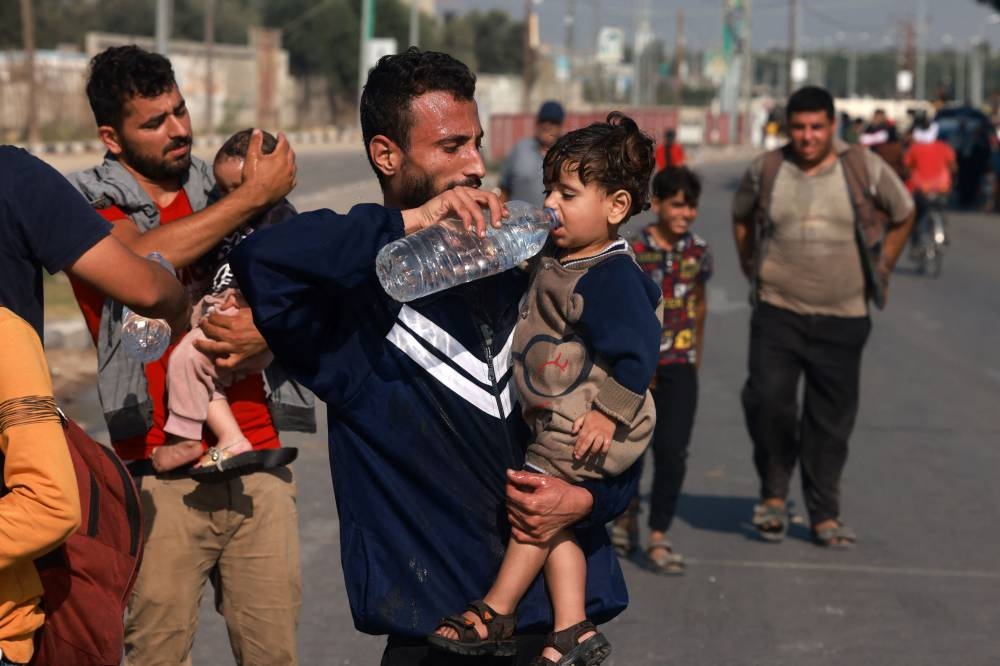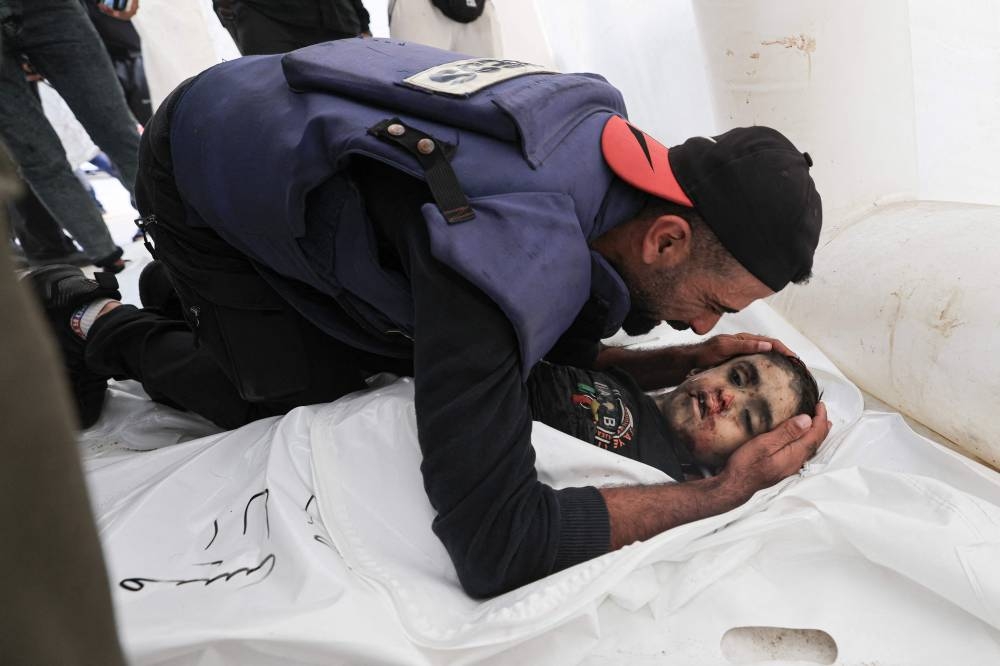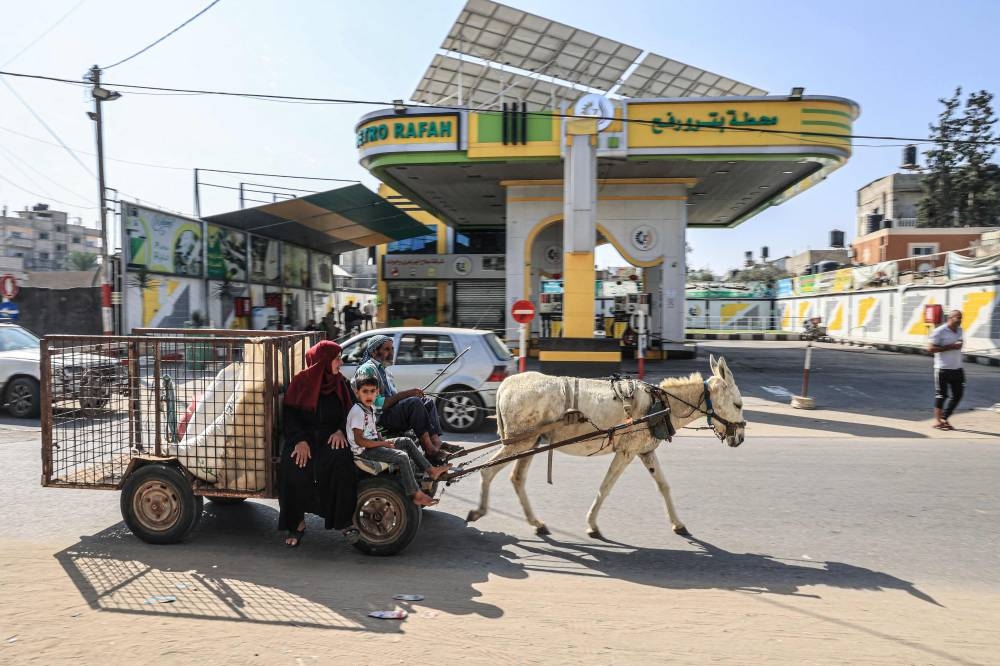- Rafah crossing evacuations suspended since Saturday
- Efforts underway to resume evacuations
- Qatar's foreign ministry says that without a 'period of calm', mediators will not be able to secure release of Israeli hostages
Palestinian President Mahmoud Abbas demanded an immediate Israeli ceasefire at a meeting with US Secretary of State Antony Blinken in Ramallah, while Gaza's health ministry said dozens died in a strike on a refugee camp overnight.
Blinken, who has dismissed the idea of a ceasefire by Israel for fear it would benefit Hamas, was making an unannounced visit to the occupied West Bank as part of efforts to prevent the Israel-Hamas war spreading.
The Rafah crossing to Egypt's Sinai peninsula is the only exit point from Gaza not controlled by Israel. Aid trucks were still able to travel into Gaza, two Egyptian sources said.
Evacuations began on Wednesday under an internationally brokered deal.
More than 300 Americans have left Gaza, but some still remain, Jonathan Finer, deputy national security adviser, said.
"We believe it will (reopen) this afternoon," a senior US State Department official said, speaking on condition of anonymity. "Don't hold me to it," the official added.
At the Maghazi refugee camp refugee camp in Gaza, people searched for victims or survivors.
"All night I and the other men were trying to pick the dead from the rubble. We got children, dismembered, torn apart flesh," said Saeed al-Nejma, 53, adding that he had been asleep with his family when the blast hit his neighbourhood.
A spokesman for the health ministry in the Hamas-run Gaza Strip said Israeli forces had struck the camp overnight, killing at least 47 people. Asked for comment, the Israeli military said they were gathering details.
In a separate attack, 21 Palestinians from one family, including women and children, were killed in strikes overnight, the health ministry said.
"We demand that you stop them from committing these crimes immediately," Abbas told Blinken, urging an "immediate ceasefire" from Israel.
"There are no words to describe the war of genocide and destruction to which our Palestinian people are being subjected in Gaza at the hands of the Israeli war machine, without regard to the rules of international law," Palestinian news agency WAFA quoted Abbas as telling Blinken.
Foreign ministers from Qatar, Saudi, Egypt, Jordan and the United Arab Emirates met Blinken in Amman on Saturday and also urged him to persuade Israel to agree to a ceasefire.
Pope Francis joined calls for peace. "Stop in the name of God," he said, calling for humanitarian aid and help for the injured in order to ease the "very grave" situation in Gaza.
But Blinken says a ceasefire would benefit Hamas, allowing it to regroup and attack again. Instead, the US wants localised pauses in fighting to allow in humanitarian aid and for people to leave Gaza.
"The Secretary reaffirmed the United States' commitment to the delivery of life-saving humanitarian assistance and resumption of essential services in Gaza," spokesperson Matthew Miller said.
Israeli Prime Minister Benjamin Netanyahu again rejected calls for a ceasefire in Gaza.
Gaza health officials said on Sunday more than 9,770 Palestinians have been killed in the war.
Israel continued to strike the Gaza Strip by air, sea, and ground overnight.
The Palestinian Red Crescent said there was also intense bombardment, artillery explosions and air strikes in the vicinity of the Al-Quds Hospital in Gaza's Tal Al-Hawa area.
US special envoy David Satterfield said in Amman on Saturday that 800,000 to a million people had moved south, while 350,000 to 400,000 remained in and around Gaza City.
Living conditions in Gaza, already dire before the war, have deteriorated. Food is scarce, residents are drinking salty water and medical services are collapsing.
The UN humanitarian office estimates that nearly 1.5 million of Gaza's 2.3 million people are internally displaced.
The aid currently entering Gaza is "nowhere near" enough to meet the needs of people there, which are growing exponentially, World Food Programme head Cindy McCain said after visiting the Rafah border crossing.
"People are living in a horrific nightmare," Mc Cain said. "Food and water are running out. A steady flow of aid is needed to meet the desperate needs now."
Qatar's foreign ministry said that without a "period of calm" in Gaza its mediators would not be able to secure the release of Israeli hostages held in the enclave.
Qatar has, in coordination with the US, led mediation talks with Hamas and Israeli officials over the release of hostages.
Worsening violence in the Israeli-occupied West Bank has fuelled concerns it could become a third front in a wider war, in addition to Israel's northern border, where clashes with Lebanese Hezbollah forces have mounted.
In Abu Dis, a Palestinian village near Jerusalem, Israeli police conducting an arrest raid were fired on by a gunman and killed him, a police spokesperson said.
The Palestinian health ministry said three Palestinians were killed in the incident, which it described as clashes with Israeli forces. Another Palestinian was killed by Israeli troops in the West Bank city of Hebron, the ministry said. The Israeli military did not immediately comment on that.

